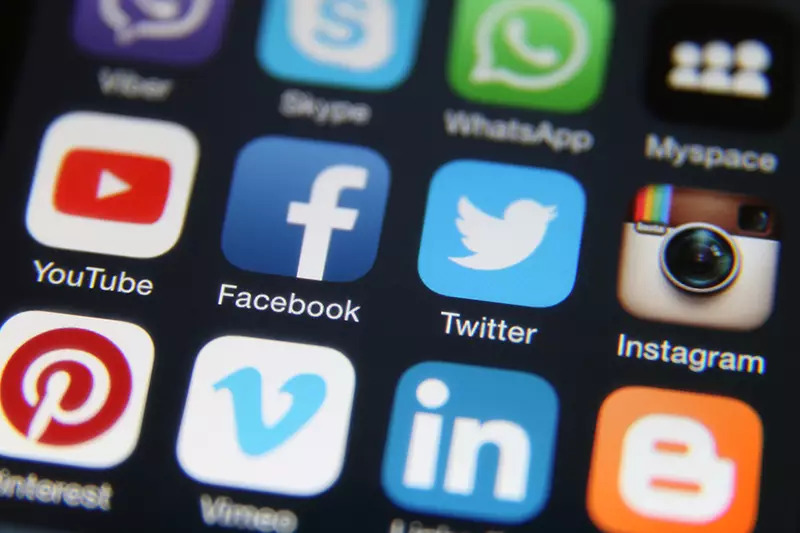
Chances are, your business at least has a business Facebook page. Depending on your target audience, you may have a presence on multiple social media channels. In today’s age of instant gratification, when people message your company through social media, or post a question, comment or review; or @ you in a Tweet, they expect a quick response. It’s especially important to give a quick response to negative comments.
You (or a designated employee) should be well versed in all of the social media channels your company uses, and should be an expert in customer service and diffusing tense situations. According to Marketing Sherpa, 85% of U.S. consumers said they use at least one social media platform, and more than half of those follow one or more brands on social media.
This is not an area to “wing it.” Your brand name is on the line, so you have to have a plan to excel at your social media response. A big part of that is having a plan on how to respond to the various types of interactions you will have on your social media channels. And remember, anything you post on a public page is there for all prospective customers to see. So tone matters, and how well you handle the situation matters as well. Your response on social media is all part of the overall customer experience.
If your company is large, you may have someone who is your social media manager. This may be someone in customer service, or several people who are authorized users to respond on the company’s behalf. If your company is smaller, it may be you as the boss who responds. Either way, a timely, well-thought out response goes a long way towards reinforcing your brand image. An off the cuff, rude response can quickly go viral and seriously damage your brand.
Common customer interactions on social media center around these areas:
Take the time to thank customers for leaving positive comments or reviews. This includes on your social media channels, as well as Yelp and Google Reviews. A simple “Thanks for the kind words. We’re glad you are happy with xyz, and it was a pleasure working with you and your family.”, or something along those lines. If you can throw in a personal comment, so much the better. It shows you engage with your customers and remember them.
And everyone likes a thank you. Happy customers become repeat customers, and make referrals.
You have to take the bad with the good. Unfortunately, there is always going to be something that doesn’t go right. Avoid canned responses like “We’d be happy to review your account and address your concerns.” Respond in a way that you wish customer service agents would respond to you. How about, “We are committed to providing quality service, and we would like to speak with you so you can tell us exactly what happened. Then we can work with you to get this resolved to your satisfaction. Please message us at jan.doe@companyxyz or call us at 800-123-4567. Ask for Jan.”
Again, tone matters. Even if the comment uses expletives or trash talk, your tone needs to remain professional, polite, and caring. If the review is totally off base and doesn’t tell the full story, take the time to respond and lay out what your company did to resolve the issue. Do still thank them for leaving feedback, as your company can use negative feedback to prevent the same thing from happening in the future. Then if the issue is resolved, you can ask the client to post a follow up to their review.
It’s important to know that the majority of consumers read company reviews before hiring a service company to do anything. This includes customer testimonials on your website, Facebook reviews, Google reviews, and Yelp reviews.
If your reviews show that you respond to both positive and negative feedback in a professional manner, that shows prospective customers that you are a credible company to do business with.
This is generally an easy interaction. Give a full answer, and offer to follow up via a phone call or private messaging if the person has additional questions. You can provide a link to a pertinent section of your website. Other options include a blog or a video to provide a comprehensive answer.
Depending on what the crisis is, posting a statement from the company CEO or owner addressing the situation may be the best first response. If you have a PR or marketing company you work with, you may want to enlist their help with crisis management. You don’t want to post a response on social media that doesn’t jive with the overall crisis management response plan.
A response to further questions may be a standard, “We are working to the best of our abilities to resolve the situation. We will provide more information as we get it.”
There’s nothing the internet and social media like better than a good hoax. The trouble with hoaxes is there is slightly enough truth in them (whether a video or a false quote, or the imaging and logo) to make some people take it as the gospel truth.
This can range from a meme showing your CEO said something she most certainly didn’t, or an uniformed tweet. It could even be a viral video purporting to show something horribly wrong happened at your work location.
People are more prone to share, retweet and repost negative news about a company, unfortunately. The first response would be to issue an official statement on all social media channels, and pin the post to the top. You might also want to disseminate a news release to local or national media, and make yourself or a spokesperson available for interviews. You may want to seek the help of a PR or marketing company to decide on the next steps.
If your brand is strong, you can survive a crisis or fake news, and come out stronger on the other side. When it comes to responding to reviews, comments and questions, each customer interaction is a chance to build brand loyalty. It's also an opportunity to show you truly care about your customers.


